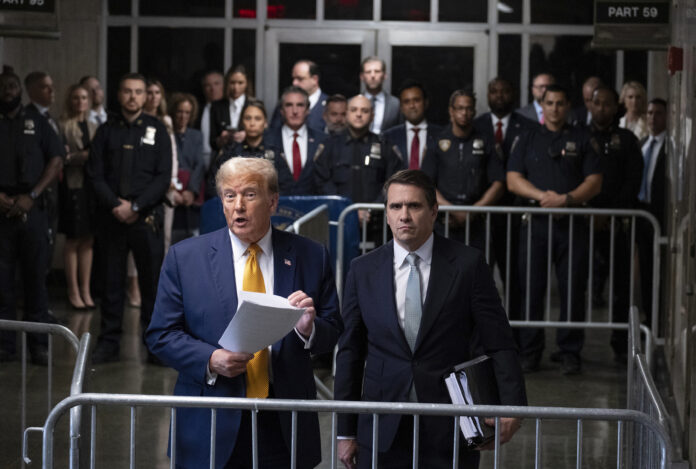On Tuesday, a judge will determine whether to overturn President-elect Donald Trump’s conviction in his hush money case following a recent U.S. Supreme Court ruling on presidential immunity. Judge Juan M. Merchan, who oversaw Trump’s landmark trial, must now decide whether to vacate the jury’s verdict and grant a new trial or potentially dismiss the charges entirely. The decision may also affect whether Trump will be sentenced as planned on Nov. 26.
Trump’s White House Win Complicates Legal Landscape
The case revolves around Trump’s actions as a private citizen, despite his recent victory in the presidential election. In May, a jury found Trump guilty of falsifying business records related to a $130,000 payment to adult film actor Stormy Daniels in 2016 to silence allegations of an affair. Trump has denied any wrongdoing and claimed the case was a politically motivated attempt to derail his campaign.
Supreme Court Ruling on Ex-President Immunity Sparks Appeal
Shortly after Trump’s conviction, the Supreme Court ruled that former presidents cannot be prosecuted for actions related to their official duties. Trump’s legal team argued that this decision could invalidate parts of the evidence used in his trial, including his presidential financial disclosure forms and testimony from White House aides. Prosecutors countered that this evidence was only a minor component of their case.
Historic Conviction Puts Trump’s Legal Future at Risk
As the first ex-president to be criminally convicted, Trump faces potential penalties ranging from fines and probation to a prison term of up to four years. The conviction centers on how Trump accounted for reimbursing his attorney, Michael Cohen, for the Daniels payment. Cohen, who initially fronted the money, was later repaid through a series of payments falsely logged by Trump’s company as legal expenses, with Trump personally signing many of the checks from within the White House.
Prosecutors Allege Cover-Up, Trump Claims Innocence
Prosecutors argued that the payments’ misclassification aimed to conceal the true purpose of the transactions, shielding voters from damaging allegations during Trump’s first campaign. Trump contends that Cohen was legitimately paid for legal services and that the Daniels payoff was meant to protect his family, not to sway voters.
Trump’s Status as President-Elect Adds Pressure to Overturn Verdict
As Trump works to overturn the verdict, his return to the presidency raises questions about the implications of sentencing a former and future president. While his defense has urged Judge Merchan to dismiss the conviction, Trump is also attempting to move the case to federal court. A federal judge previously blocked this effort, but Trump has filed an appeal, potentially leveraging his recent election win to bolster his legal position.


